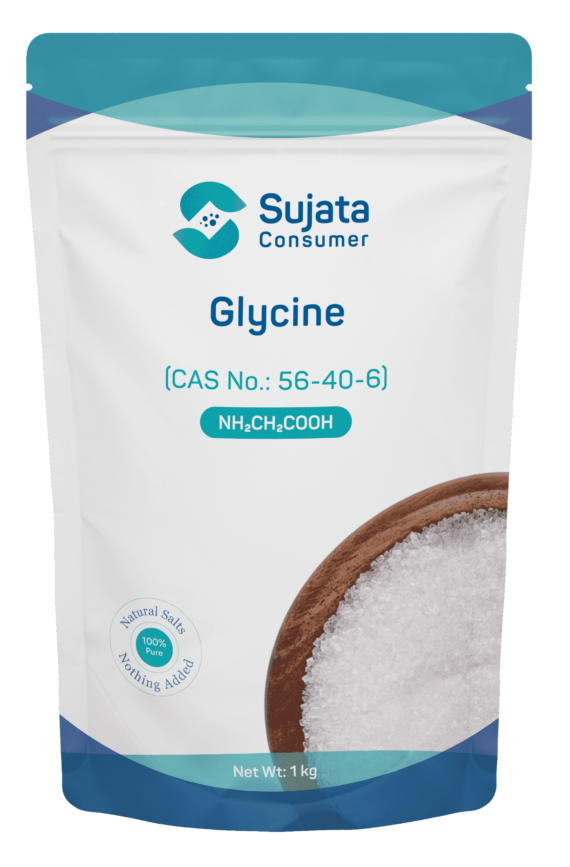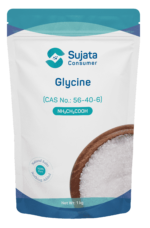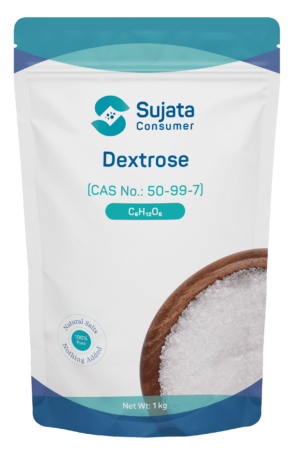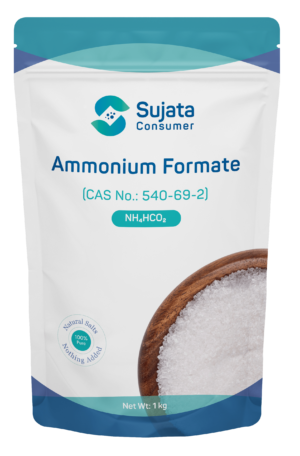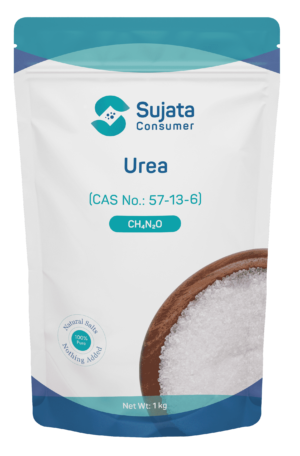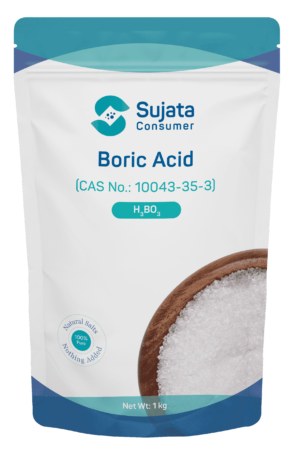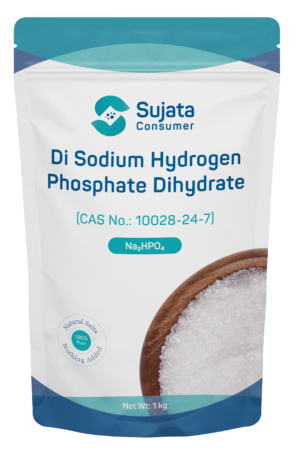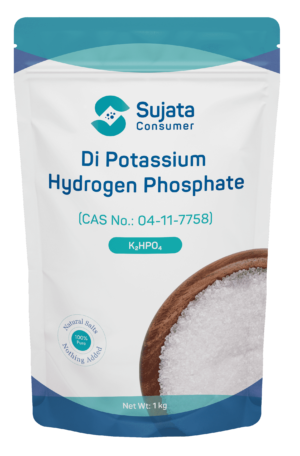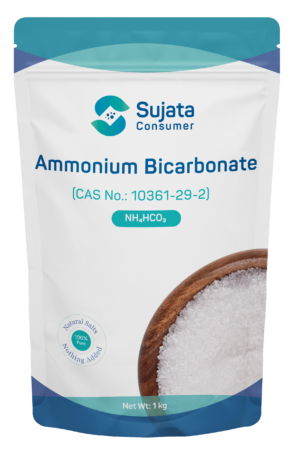Glycine
Glycine is the simplest amino acid and is classified as a non-essential amino acid because it can be synthesized by the human body.
Description
Glycine is the simplest amino acid and is classified as a non-essential amino acid because it can be synthesized by the human body.
| Product Name | Glycine |
| Catalogue Number | PU22000038 |
| CAS No. | 56-40-6 |
| Molecular Formula | NH2CH2COOH |
| Molecular Weight | 75.07 g/mol |
| Grade | PUURETA (Pure) |
| HS Code | 29224910 |
| Categories | Lab Chemicals |
| EC Number | 200-272-2 |
| Synonyms | Aminoacetic acid |
|
Parameter |
Specification |
|
Appearance |
A white, crystalline powder |
|
Solubility |
Freely soluble in water |
|
Assay |
98.5-101.5% |
|
LOD (Max.) |
0.2000% |
|
Sulphated ash (Max.) |
0.1000% |
|
Chloride (Max.) |
0.0100% |
Glycine is the simplest amino acid and is classified as a non-essential amino acid because it can be synthesized by the human body.
| Product Name | Glycine |
| Catalogue Number | PL22000038 |
| CAS No. | 56-40-6 |
| Molecular Formula | NH2CH2COOH |
| Molecular Weight | 75.07 g/mol |
| Grade | PUURETA (Pure) |
| HS Code | 29224910 |
| Categories | Lab Chemicals |
| EC Number | 200-272-2 |
| Synonyms | Aminoacetic acid |
CAS No. 56-40-6Molecular Formula NH2CH2COOHMolecular Weight75.07 g/molGradePLURAATA (Extra Pure)HS Code29224910SKUSCS147CategoriesLab ChemicalsEC Number200-272-2Synonyms Aminoacetic acid
|
Parameter |
Specification |
|
Appearance |
A white, crystalline powder |
|
Solubility |
Freely soluble in water |
|
Assay |
98.5-101.5% |
|
pH |
5.9-6.3 |
|
LOD (Max.) |
0.2000% |
|
Sulphated ash (Max.) |
0.1000% |
|
Heavy Metals (Max.) |
0.0010% |
|
Chloride (Max.) |
0.0100% |
|
Lead (Max.) |
0.0005% |
Protein Building Block: Glycine is a fundamental building block of proteins, and it is involved in the synthesis of various proteins in the body, including collagen, the most abundant protein in the human body.
Neurotransmitter and Nervous System Function: It serves as an inhibitory neurotransmitter in the central nervous system and plays a role in the transmission of nerve signals.
Nutritional Supplements: Glycine is used as a dietary supplement for its potential health benefits. It is sometimes taken to support muscle growth, improve sleep, and enhance cognitive function.
Pharmaceuticals: Glycine is used in the pharmaceutical industry as a component in various medications, including antacids and certain drugs used for schizophrenia and other neurological conditions.
Food and Beverage Industry: It is used as a food additive (E640) and a flavor enhancer in the food and beverage industry.
Cosmetics and Personal Care Products: Glycine can be found in cosmetics and skincare products due to its hydrating and skin-conditioning properties.
Chemical Industry: In the chemical industry, glycine is used in the synthesis of various chemicals and pharmaceuticals.
Metal Chelation: It can be used as a chelating agent to bind with and remove heavy metal ions from solutions.
Veterinary Medicine: Glycine is used in veterinary medicine as a supplement and in certain treatments for animals.
Biochemistry and Research: It is a common reagent in biochemical and molecular biology research due to its role in protein chemistry and enzyme reactions.

